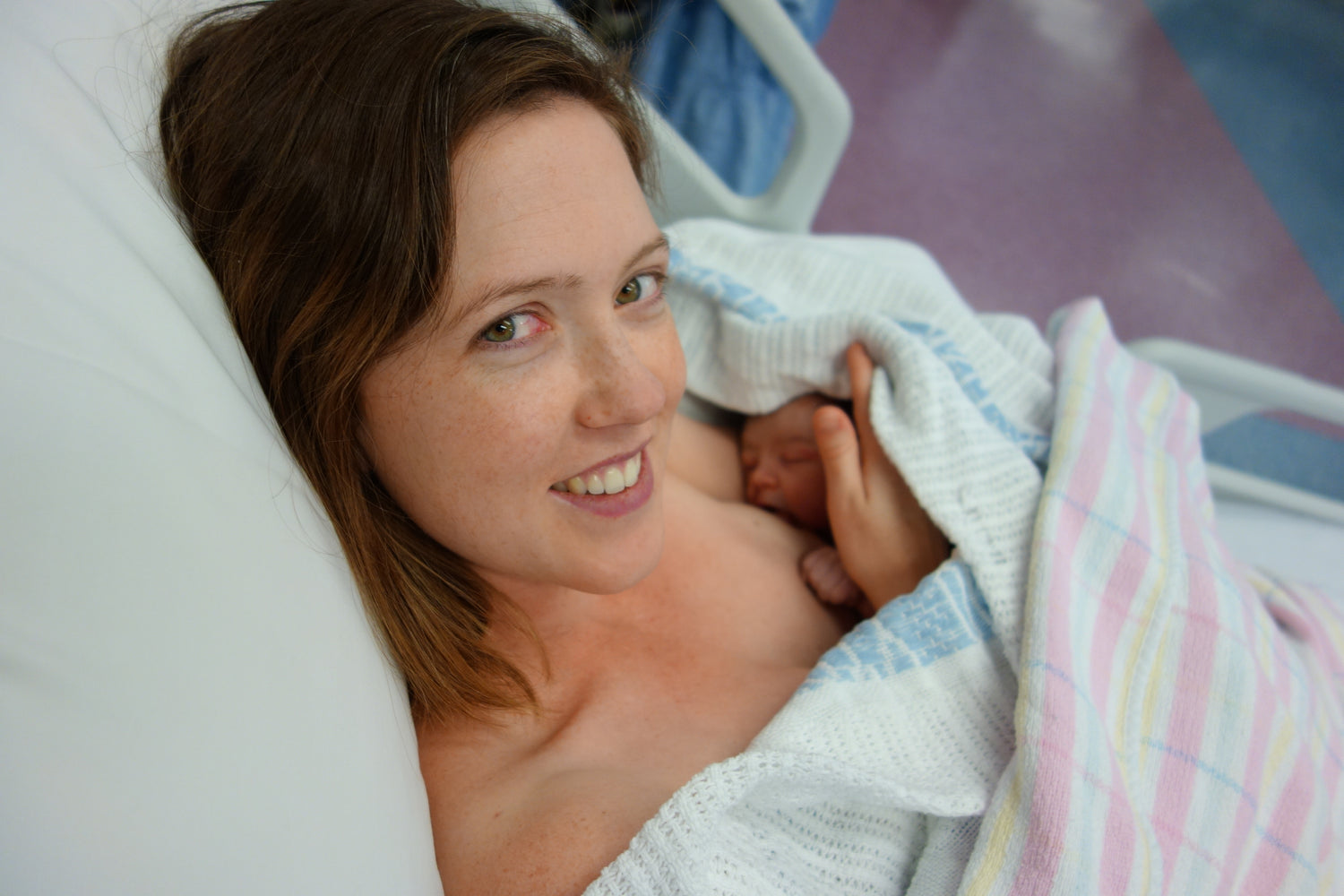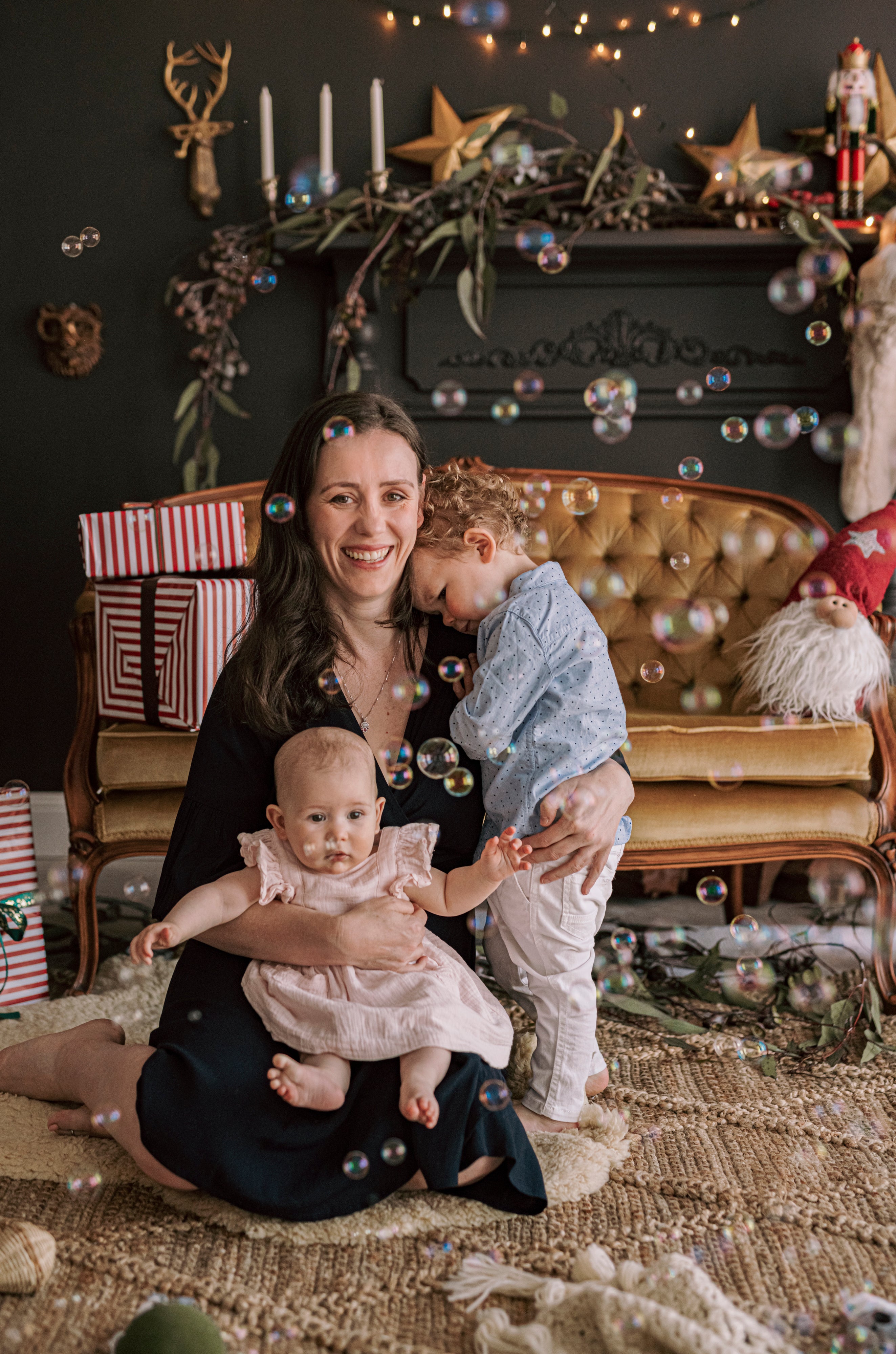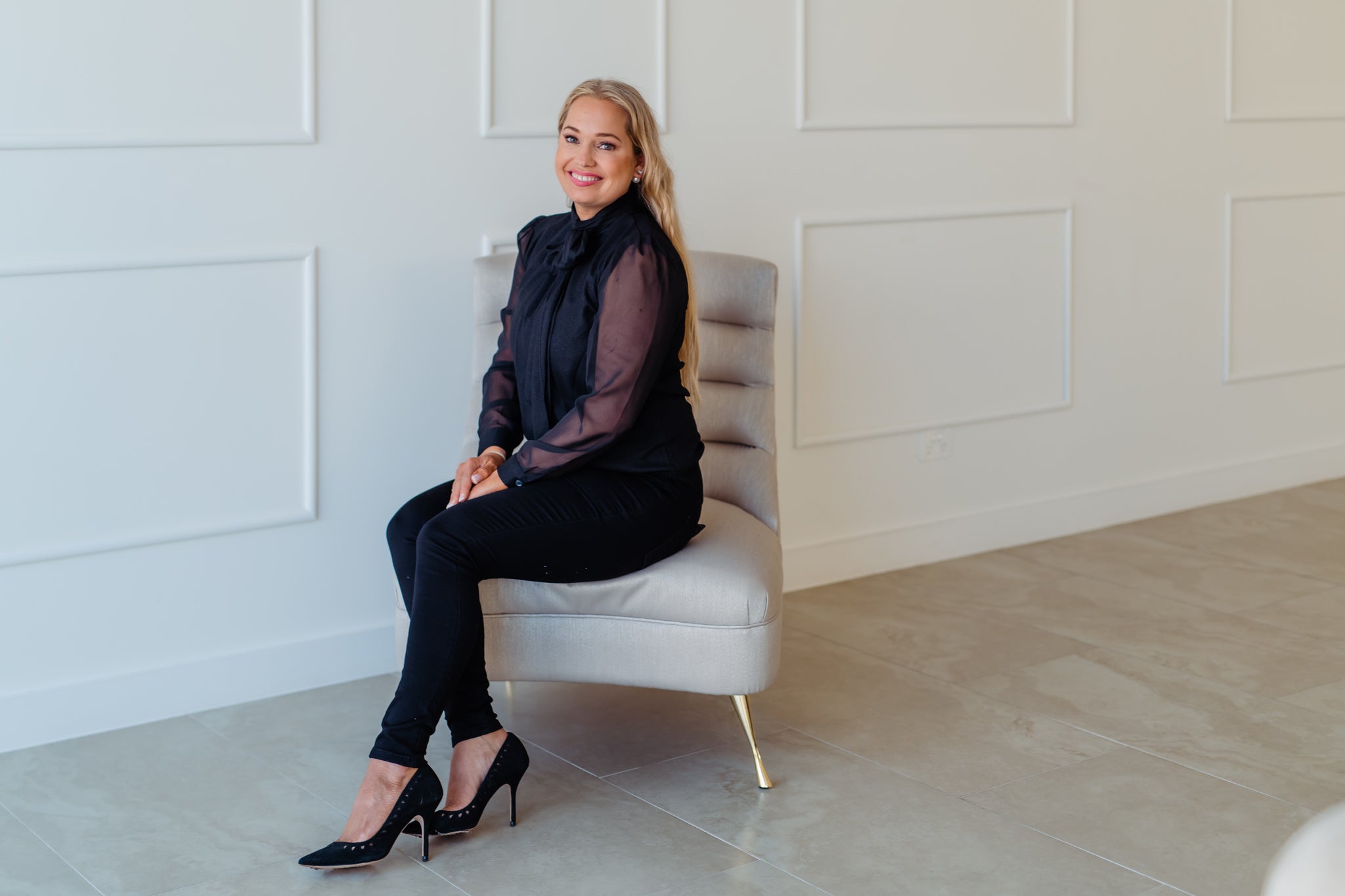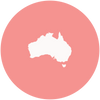GP and International Board-Certified lactation consultant Eliza Hannam is a busy mum of three children. Here she shares her breastfeeding journey, and the one piece of advice she wished she could have given herself as a new mama.

“Before I had my first baby, like many new parents-to-be, I spent a lot of time thinking about the birth, and very little time thinking about what happens afterwards, including breastfeeding.
As a GP I knew all about the scientific research that tells us how good breastfeeding is for both mums and babies. Evidence tells us that there's some pretty amazing lifelong benefits for baby in terms of immune support and chronic disease prevention. Then there is bonding, sleep support and neurodevelopment benefits. For mums, breastfeeding can help with recovery from pregnancy, lower risk of type two diabetes and insulin resistance, and reduce the risk of breast cancer. It can even be protective against postpartum depression.
So, from a health perspective, I knew breastfeeding was something I wanted to do, and very naively I thought it would be easy and natural. I did my one-hour hospital class before the birth and honestly didn’t give it much more thought.
Despite needing an emergency caesarian, breastfeeding came easily. My daughter latched on in recovery and fed beautifully. I had no problems. My supply came in when it was meant to, and I had no nipple pain. I fed for a year and when we were both ready to wean, that was easy too. At the time I thought my experience was the norm. Now I know we were the exception.
Two years later I had my second baby, and my experience was completely different.

“I had a real sense failure…and so much mum-guilt.”
Once again, my birth wasn’t exactly what I’d wanted, but I had no reason to think breastfeeding would be hard with my second baby. But it was.
My son was sleepy and jaundice. He didn’t want to latch and became really distressed when we’d try to breastfeed, which was the hardest thing for me. I felt like he was rejecting me.
I didn’t have any strategies in place and very quickly I was pumping and bottle feeding. For months, I tried to keep breastfeeding, however, he developed a preference for the bottle. Putting myself through this rejection multiple times a day took its toll. There were lots of tears. I had a real sense of failure, but also a kind of resentment of my baby, which led to so much mum-guilt. It was exhausting and incredibly hard.
When I finally decided that breastfeeding just wasn’t going to happen it was quite liberating. I realised that this journey wasn’t going to look the same as my first, and I just wanted to make sure everyone was happy. I pumped and bottle feed until he was 12 months old. It was a lot of work, but luckily, I had a good quality, hands-free pump, and a good supply. I remember we went overseas, and I pumped in the middle of Central Park in New York.
“My brain went to, ‘we’re doomed, we're never going to breastfeed’.”
Between my second and third pregnancies I’d become a qualified lactation consultant and supported dozens of families. It was going through that training when I realised how dismally little GPs are trained in breastfeeding, and how poorly equipped I’d been as a GP trying to support parents with breastfeeding challenges. I’d had no concept of the impact issues with breastfeeding could have on relationships, sleep, and mental health.
For me, I had a lot of anxiety about what breastfeeding would look like with my third baby. I knew I was more prepared than ever, but was worried that if it didn’t work, I would look like a failure as a lactation consultant, as well as a mum.
I also knew that exclusive expressing might not be possible with two young children at home, and I honestly didn't want to have to do that again. I was nervous because I'd had two such different experiences and didn’t know what to expect.
When my third baby was born, I started having the same issues I’d had with baby number two. She had difficulties latching, got distressed with feeds, and I had to start doing some expressing and top ups in the hospital.
The whole process was really triggering. My brain automatically went to, ‘we’re doomed, we're never going to breastfeed’. Even though I'd worked with so many families where it had taken time to get to a good place with feeding, in my mind that didn't seem a possibility for me.
“Breastfeeding isn’t easy and both mum and baby need to learn”.
Despite the issues, we did some things in the early days that I think made a difference. We delayed bottles a little bit, and I did some finger feeding and supply line feeding too. I also had contact with two lactation consultants who reassured me that it often takes up to 13 weeks for the baby to get strong enough to breastfeed. My medical brain knew that of course. But as a mum I think I just needed to hear it.
Sure enough, when she was about 13 weeks old, something clicked. I was able to pull back on how much I was pumping and soon we were direct feeding. It was a really humbling moment when I realized that this journey, and not my first, was probably far more common for women. Breastfeeding isn’t easy and both mum and baby need to learn. Having the right support and strategies in place a critical. She’s 10 months now and we’re still breastfeeding.

“Lactation consultants have a literal and emotional toolkit of breastfeeding aids and ideas”.
While there are some medical conditions that can impact a person’s ability to breastfeed, such as polycystic ovary syndrome, gestational diabetes, and thyroid issues, I believe that every person who hopes to breastfeed can benefit from the support and education that a lactation consultant can offer before the birth.
As well as a breadth of education and information, lactation consultants come with a literal and emotional toolkit of aids and ideas that can help with everything from latching positions to supply, managing breastfeeding challenges and more.
I think some people worry that they’ll be judged about the direction they choose to take, but that’s the opposite of what lactation consultants are there to do. Our job is to support your individual values and goals, while understanding what is possible for your family. We want to validate whatever decision is right for you, your baby, and your family.
The one piece of advice that I wish I could go back in time and give myself, and what I tell all new parents, is to spend time planning for postpartum and breastfeeding. Don’t just plan for the birth. My children are now six, four, and 10 months, and I know from experience that no two babies are ever the same.
*Dr Eliza Hannam has not been paid by Lactamo for sharing her story.






